missed a few days as I had bad cold.
I've read this twice; ostensibly a review of My so-called freelance life by Michelle Goodman, a self help book for working creatively, Elizabeth Bachner writes a 5,000 word essay in defense of the old fashioned idea of genius. (Bookslut, Dec. 2008)
I've read this twice; ostensibly a review of My so-called freelance life by Michelle Goodman, a self help book for working creatively, Elizabeth Bachner writes a 5,000 word essay in defense of the old fashioned idea of genius. (Bookslut, Dec. 2008)
We live in an anti-genius society, and it’s high time that stopped...I apologise for quoting slightly more than 10%, but the piece sits so well right now with my 'let's stop talking crap' frame of mind. It has a few detours but is rigorously worked out. Read it all, link at top
What Michelle Goodman is describing sounds identical to a cubicle job, only done in your bathrobe, potentially surrounded by children and pets. For people everywhere on the food chain, our tangle with the problems of figuring out how to get by is usually either ignoble or torturous, or both. Why does she have to bring “nobility” into it, or insult artists who need to make their real work their only priority?..
Nobility is not the prudent decision to do corporate work so that you can enjoy dabbling at creative projects in your spare time. Nobility is the constant, courageous daily effort to pursue and embody truth and beauty...
It’s social suicide these days to admit that art isn’t “work” for you, that it’s something that happens to you as if you’re possessed, that to not create it would be like seeing a human baby bleeding and abandoned on a street corner and leaving him there to die, that you are dazzled by the electric words that come to you from some angel or demon or forgotten, ancient god. But the fact is that the creative part is erotic, and mystical, and rapturous, and deadly, and filthy, and horrible, and ecstatic...
Create your work and then try to place it. If it won’t place, figure out some way to get by. Don’t jump out your fifth floor window or drown yourself in the local river, but neither should you tailor your poems to get accepted in the Peoria Poetry Journal. That’s committing another kind of murder...
... creating real work is different from the meaningless products of mundane society. The process is different. The dazzling, thrilling results are still different, even all of these years after a bunch of sour academics, unhappy geniuses and talented but hyperbolic writers have proclaimed the death of art.
Labels: genius
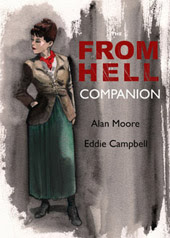
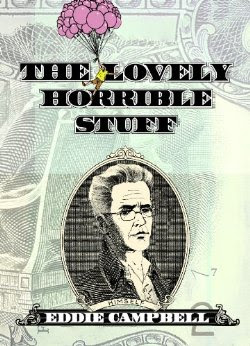

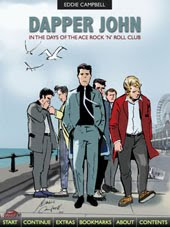
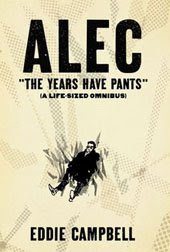
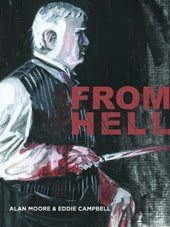
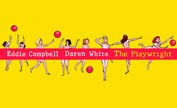
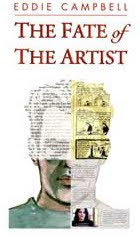
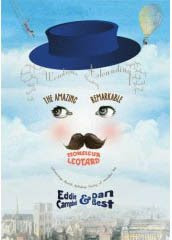
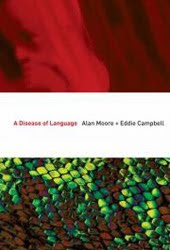
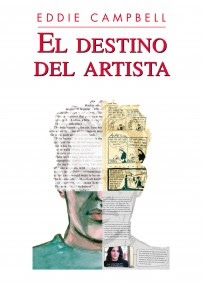
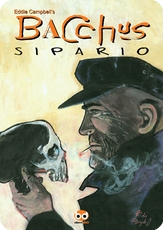
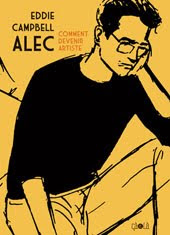

5 Comments:
Love "neither should you tailor your poems to get accepted in the Peoria Poetry Journal". It IS murder.
Hola, Eddie!
So you just need a cold to stop working? Man, I thought you Scottish were tougher.
Hope Ana and the kids took good care of you!
Well, I’d like to ask you a favour:
Sometimes I feel tempted to translate to Spanish some of your posts. Would you mind if I do it in my blog? It would also imply cutting and pasting some of your art. Obviously, I’d add a link to your original texts in this site. (Please, don’t ask me for money, I waste all of it on perfumes and lotions!)
Second, I was considering publishing the interview Norman and me made you suffer back in 2000 (both in English and Spanish) I find it really juicy and your reflections on Art and Life are really truthful.
I’d be really grateful if you accepted my appropriation of your abilities!
Un abrazo, amigo.
Nino
Great essay, and I can see why it appeals to you. Too bad the writer decided to use Michelle's book as a hobby-horse, though (in the small world department, the author is an acquaintance of mine). She's obviously not writing for geniuses - or for hobbyists for that matter - but for a thin slice of people in the so-called "creative class" who make their living producing gack for corporate paymasters but nevertheless still cherish some hope of a richer inner life.
It's worth saying that good advice for these folks = poor advice for geniuses. But most people aren't geniuses, and most geniuses have little use for self-help books (or, perhaps, great need but little interest). There are also the marginal cases of people like Henry Miller, Joseph Heller and the painter Rousseau who worked dreary day-jobs well into middle age while they nursed personal creative projects that would have been considered "hobbies" until their work was recognized as genius.
I know this wasn't your point at all, and it has nothing to do with Bachner's lucid observations. Still, you're directing people to a good essay that is also an unfair and unfortunate review of a decent, down-to-earth guidebook for non-genius professionals seeking something a little bit better than the daily grind of the office.
Nice essay, but it's funny she mentions Kafka at the end, since he held a job (at a state insurance company) for most of his (short) life and did all his writing in the evening and into the night.
Charles Bukowski quit his job at the post office after twlve years only after he had convinced his publisher John Martin, that if Martin would pay him $ 100 a month, Bukowski could write books that would sell and they would both benefit. He wrote "Post office" (his break through) and as he later noted "...never looked back..."
Hey Robsalk, I have no idea what dreary day job Henry Miller had well into middle-age, and am curious about that.
Also, thanks Lennard for a re-cap of one of the most well-known events in Bukowski biography.
Absolutely fantastic!
Post a Comment
Subscribe to Post Comments [Atom]
<< Home